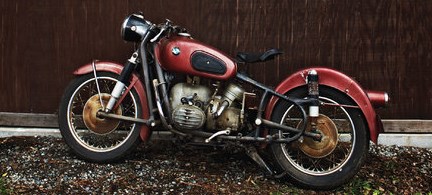As one whose academic/military high school did not include a single “shop” course, I can still, to this day, solve an easy algebraic simultaneous equation, employ very basic calculus to follow simple quantitative models of change, use what I recall about trigonometry to guess how high a flagpole is and more or less roughly translate a passage from Virgil’s sixth book of the Aeneid.
I can even quote a few lines from Shakespeare’s Macbeth if anybody is interested.
However, to my eternal dismay, these abilities, as I have found over the last 65 years, are actually not life skills.
Much to the amusement of my family, the things I really need to be able to do remain a challenge: Drive a nail in straight, fix uneven chair legs, replace a tap or safely install a tricky lighting fixture.
I was, I now realize, a victim of the 1950s philosophy that students thought to be college- or university-bound would take only traditional academic courses, but engage in no hands-on vocational training.
That would be for “other” students, who would go to a different wing of the school where they could take basic academic courses, but with the greater emphasis being on vocational training, or “shop.”
In at least one large secondary school where I taught, the shop wing was colloquially and disrespectfully known as “occupational alley.”
Since the 1990s, enrolment in high-school shop-class programs declined as “futurist” educators prepared the system to produce students who would, it was believed, become “knowledge workers.”
This thinking was tied to a vision of the future in which we would all somehow take leave of material realities and find both employment and personal satisfaction in a pure information economy, writing software programs in a virtual world of knowledge while forgetting that somebody has to actually be able to do things: fix our cars, unclog our toilets, build our houses, repair that which needed repairing.
Fortunately for the next generation of secondary-school students, that thinking is slowly changing. Major trades are crying out for young men and women willing to take on apprenticeships which will lead to prosperous careers in one of the major trades. I say “prosperous” if the cost of getting stuff fixed around my house is any indication.
But that’s not even half the story, and thankfully there is now a parallel emerging interest among educators in the revival of the overall educational benefits of practical arts as inspired by books like Shop Class as Soulcraft by educational philosopher and motorcycle mechanic Matthew B. Crawford.
Crawford proposes that “the satisfactions of manifesting oneself concretely in the world through manual competence have been known to make a man quiet and easy. No need to seek reassurance about self-concept. He can simply point: the building stands, the car now runs, the lights are on, the plumbing works.”
That kind of satisfaction makes sense to me as one who, notwithstanding a series of career successes, found almost greater satisfaction in a wonky coffee table I once built during a six-week adult night-school basic carpentry class.
Crawford’s message also makes sense to people like Susan Luckman, professor of cultural studies at the University of South Australia.
Luckman’s research expands Crawford’s thinking into a consideration of the physical and mental-health benefits of actually “doing stuff,” as opposed to simply reading and learning about stuff.
Luckman suggests that making things and learning how to “do” things such as bicycle maintenance, basic woodwork, knitting, quilting, needlework, pottery, playing a musical instrument, even making beer or wine — these skills enhance the quality of life of those who find personal satisfactions not always found in purely intellectual pursuits.
Because craftsmanship refers to objective standards, as the sociologist Richard Sennett argued in his anti-consumerism book The Culture of the New Capitalism, “the craftsman is proud of what he/she has made, and cherishes it, while the consumer discards things that are perfectly serviceable in his/her restless pursuit of the new.”
Perhaps the most succinct argument for a reintroduction of practical arts into the everyday curriculum comes from humanist and freelance science writer Jennifer Ouelette, author of The Calculus Diaries: How Math Can Help You Lose Weight, Win in Vegas and Survive a Zombie Apocalypse: “I succeeded at math,” writes Ouelette, “by the usual evaluation criteria: grades [with] no real grasp of the significance of what I was doing or its usefulness in solving real-world problems.”
Now — back to getting those darn chair legs even.
Geoff Johnson is a former superintendent of schools.



